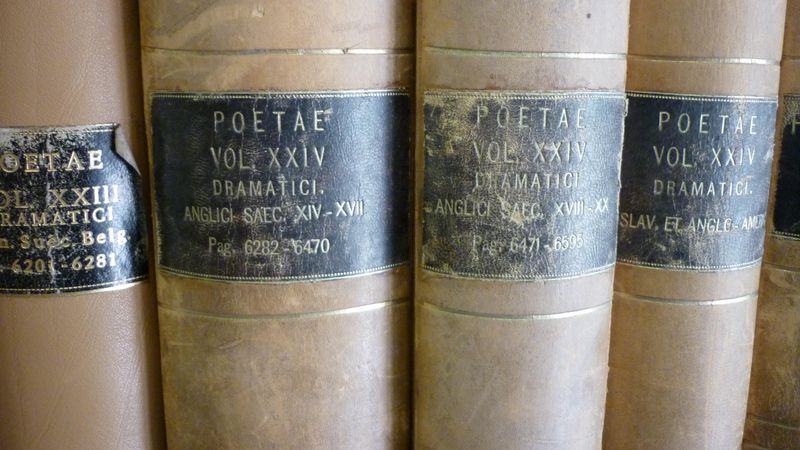Earlier this year, Maximiliaan van Woudenberg published a study on Samuel Taylor Coleridge’s 1799 stay in Göttingen. As the influence of this period on Coleridge’s life and work has been analysed with quite different results, van Woudenberg has choosen to reassess it by closely studying the relevant sources – including some so far unexamined primary records – against the backdrop of the Göttingen intellectual and historical context in which Coleridge worked. These aspects are viewed as a “constellation” – referring to the methodology of Konstellationsforschung – which influenced Coleridge's working process and intellectual interests.
Van Woudenberg describes Göttingen University Library as a central element in this constellation where Coleridge spent much of his time studying, searching for sources and transcribing. At the time, the Göttingen cataloguing system represented a brand-new research innovation with the Classified Catalogue (“Band-Realkatalog”) documenting the ongoing research processes in an encompassing range of subjects and disciplines. Van Woudenberg thoroughly studies the organisation of Göttingen University Library at the time and the way it was used, particularly describing the important role of the Classified Catalogue which displayed the research progress in a field. At the time, Coleridge might not have been allowed to access the catalogue by himself, so most likely he was assisted by a library custodian, as van Woudenberg points out. He shows how Coleridge was strongly influenced by working with the help of this tool, systematically gaining access to a wide array of sources which he otherwise might not have known of. The catalogue also demanded an understanding and the handling of the classification as a complex knowledge structure, the influence of which surfaces in Coleridge’s work even decades later, as the author shows. By closely tracing Coleridge’s working processes in different types of historical records, van Woudenberg’s study highlights in an impressive way how library collections and particularly the way in which access is provided to them influence or even shape the research methods of scholars.
If you would like to do what Coleridge did in Göttingen and browse our historical collections, use the electronic version of our old Classified Catalogue! If you are not in Göttingen, we are unfortunately not able to assist you personally, but we don’t leave you alone with this mighty tool: Use our guides on how to find your way through the historical classification system which you find in our subject-specific Search Tips (see “Browse the Historical Holdings [Works Published up to 1945])”!
Read van Woudenberg's excellent study:
Van Woudenberg, Maximiliaan. Coleridge and Cosmopolitan Intellectualism 1794-1804: The Legacy of Göttingen University. London, New York: Routledge, 2018. Routledge Studies in Romanticism 23. [SUB library catalogue entry]




